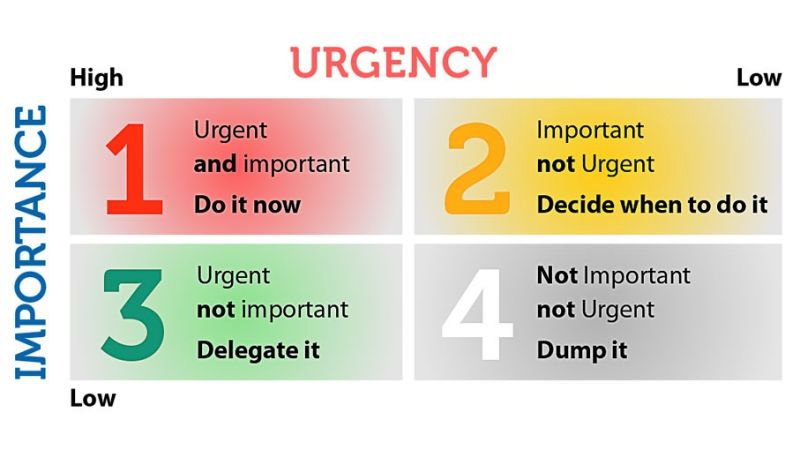You’ve said yes to one or two too many projects, and now you’re afraid you won’t be able to deliver. Now’s not the time to wallow in regret. Here’s how to get out from under your overwhelming workload.
Illustration by Sam Woolley.
First, Take a Deep Breath
Most of us have overcommitted before, whether because we didn’t want to be jerks by saying no or because we underestimated how much time or effort our projects would take. We dug this ditch ourselves, and knowing this can make the stress and guilt even worse.
However, you can’t do anything now about having taken on too much, and stressing about your work stress just multiplies it. So the first thing to do is take a step back and get calm. I’ve had panic attacks recently at the mere thought of the mountain of work I had committed to. Often, I felt paralysed. After researching coping strategies, I found that breathing exercises and other anxiety-busting strategies helped me get focused enough to start fixing the situation instead of fixating on it. It also helps to remind yourself that this period will pass, and you’ll get through it. Now let’s get to work.
Prioritise Your Projects
The next thing to do is take stock of what’s on your plate and those dreaded deadlines. What do you have to do that’s truly important and urgent? Sort your tasks and projects using the Eisenhower matrix:

Everything might seem important, but not everything is of equal importance. Find out what’s really important by grilling your boss and asking your co-workers.
As for urgent, that’s all the things that have a deadline — and a reason behind the deadline, not just a made-up deadline. For example, filing your taxes is urgent (and important), whereas filing your bank statements isn’t urgent.
Anything that’s not in that number one “urgent and important” box can wait, be delegated or ditched. You can explain those decisions to your boss by emphasising that you need time to work on the projects that will make the biggest difference to the company.
Then, pick your top priority project and focus just on that. Don’t think about the other tasks until you have to, so you can keep your inner calm.
What if everything on your to-do list is urgent and important and you still don’t have enough time? Read on.
Delegate What You Can
Break projects down into the smallest tasks possible and see if there’s any part that can be delegated. If someone can do the job to 70 per cent perfection, delegate it, unless the task is primary to your job. They might not do the job as well as you can, but you need help to get the rest of your work done.
Also, if anything can be done in two minutes or less, delegate it. For example, for writing this post, I couldn’t have someone else write my outline or finish my draft. However, once I knew which specific examples I was going to include, I could’ve asked someone to grab me the links on Lifehacker that I needed to insert. It’s a minor task, but every bit of help counts.
If you don’t have anyone to delegate to, consider using a service like Airtasker or other outsourcing services. Use them for your personal life as well if your overcommitment at work is causing strain or a time crunch when you’re at home.
Ask for a Deadline Extension
Missing a deadline sucks, but it’s better than not completing the task at all. Ask if the deadline can be moved. Some deadlines probably can’t, if they’re critical projects or other projects depend on the strict timeline. However, you might be surprised by how flexible other deadlines might be. (I had a boss once who created artificially short “deadlines” because he thought the stress was motivating. Once I found that out, the deadlines became much less stressful — because I stopped thinking about them.)
Give your boss as much advance notice as possible that you’ll need an extension, and briefly explain why. You might also offer to hand in the portion of the project that’s already finished.
This applies to freelancers and small business owners too. As a freelancer, I hate breaking promises I’ve made to clients, but thankfully the people I’ve worked with have been understanding. Just don’t do this too often.
As a Last Resort, Cancel a Project
If you can’t get a deadline extension or you can’t imagine any other possible solution, it’s time to quit. Maybe you’re just in over your head, but for the sake of your work or well-being, you might have to ditch a project.
Quit gracefully with a sincere apology, taking responsibility for having to cancel. Perhaps offer to make up for it — but only if you actually can, because otherwise you’re just restarting the overcommitment cycle.
Learn from the Experience to Balance Your Commitments in the Future
Once you get through this rough patch, it’s time to take stock so you can prevent it from happening again. Avoid overcommitting with these three steps:
- Estimate time better: Most of us underestimate the amount of time we think a task will take, even if we’ve done the same task before. To make up for this “planning fallacy”, estimate the time for the task, and then double it or even triple it. This will also leave room for any possible setbacks you might encounter but can’t foresee now.
- Negotiate your deadlines or buy yourself some time: Your boss or your client might set your deadlines, but that doesn’t mean they’re written in stone. Tell them how much time you can realistically complete the project. If they insist on a given deadline, deal with the deliverables rather than the deadline: Ask what you can deliver by that deadline and what can be moved to later.
- Learn to say no: This is the hardest but perhaps most important part. Turn down new responsibilities if they would stretch you too thin or they’re not really worth it. Remember: “If it’s not a hell yes, it’s a no.” Even people pleasers can learn to say no more often, politely of course. When you point out how heavy your workload is, most bosses will understand if you have to say no — doing so won’t necessarily wreck your career. It could actually save it. You’re better off saying no than committing to something and then letting others down.
You might be feeling overwhelmed now, but by whittling your workload as much as possible and ploughing through your priorities one at a time, you’ll overcome this predicament. And then for next time, be brave and selective with commitments you can realistically keep.

Comments
One response to “How To Deal When You’re Overcommitted At Work”
My strategy is simple…Ii work on what I can in the time given.
If things are falling behind I inform my boss I don’t have time to do lower priority projects.
Then when one enviably fails I simply point to my email chain saying “I don’t have time”
Then suggest they should hire more staff if they want the work done in time.